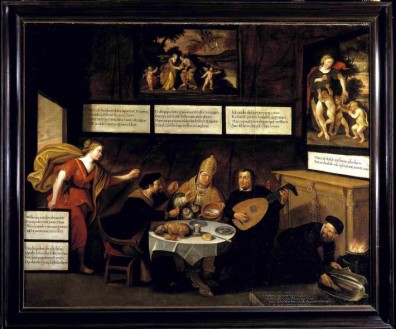Postdoctoral Research Project: Reformed Leaders among the Rhineland Exiles and their Intellectual Influences on the Dutch Republic
This project will examine the members of the consistories among the Dutch Reformed churches in exile on the Rhineland. Scholars have placed considerable emphasis on the role of Reformed exile churches, led by ministers and lay elders, in promoting Reformed doctrine, instituting and maintaining systems of church discipline to monitor exiles’ morals and beliefs, and coordinating relationships with local authorities. Thus far no one has traced the impact of those exiles who moved to the Dutch Republic starting in the 1570s in a comprehensive sense. This postdoctoral project will examine the activities of all the known Reformed ministers and elders who served the Rhineland exile churches both during their exile and upon their return to the Low Countries. The project will be prosopographical, but it will also study these men’s religious and political writings. It will trace each man from his emergence as a religious leader (usually in the Netherlands), the nature of his escape into exile and the locations where he was active, and assess his intellectual contributions within the Dutch Republic, whether within the new Dutch Reformed Church, or as a critic from the outside. The research will ask whether each man developed and promoted a Calvinist theology, the extent to which he participated in the international Calvinist movement, and what his views were toward those of other faiths (Lutherans, Catholics, Anabaptists, or others). Upon the project’s completion, the prosopographical database of these men will be published on the multilingual website devoted to the Dutch Revolt run by the University of Leiden (www.dutchrevolt.leiden.edu) for use by scholars, students, and the general public.
This book will consist of the following parts:
- An analysis of these men’s intellectual, social, and cultural profiles that might help us understand their influence, both within the exile communities and in the Dutch Republic. This part will be based on biographies (where available), as well as these men’s correspondence, letters of attestations, and other church records.
- An explanation of the locations to which these men fled and an analysis of the networks they developed once abroad. In recent years historians have drawn the attention to clergy’s coordination within networks of ‘international Calvinism’. This part seeks to understand the extent to which the Dutch Reformed ministers and elders in the Rhineland were part of this international Calvinist network and/or other networks. This part will largely be based on the correspondence of these men and consistory records.
- An analysis of the meaning that ministers and elders assigned to their exile experience while abroad. How did they understand exile and how did they cope with this experience? That is, this section is primarily interested in ascertaining whether the association that historians have given between religious exile and Calvinist theology is matched by the historical records. This section will be based on the books, treatises, speeches, and letters that the ministers wrote while in exile.
- An analysis of the theology of ministers and elders who served these exile churches who returned to the Dutch Republic. This part will primarily be based on their published writings and will seek to compare the relationship between the ideas and experiences of these men as exiles with their later intellectual developments, whether or not they later held a formal post in the Dutch Reformed Church.
